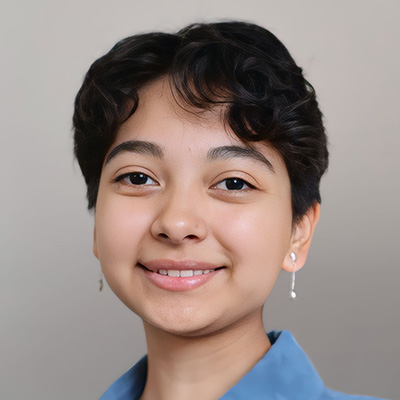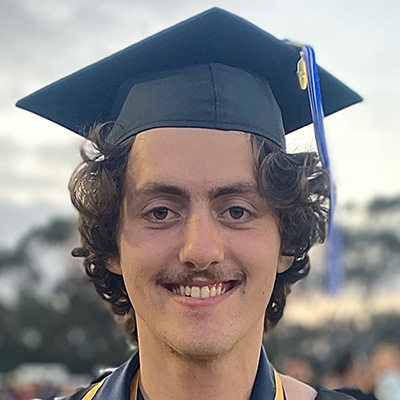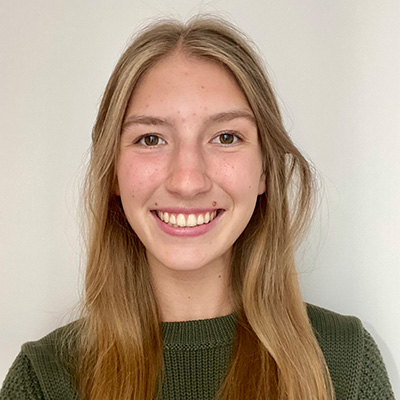Bridging Gaps Between College and Career
New Learning-Aligned Employment Program offers paid research positions for students with financial need
Story by:
Published Date
Article Content
A new program funded by the state of California is paying the hourly wages of UC San Diego students with financial need for their work as research assistants in labs across campus. The Learning-Aligned Employment Program, or LAEP, which launched during the 2022-23 academic year, offers qualifying students paid research positions that may relate to their major, career goals or the exploration of career options in an effort to promote equity in work-based learning opportunities.
At an academic research powerhouse like UC San Diego, opportunities abound for undergraduate students to participate in groundbreaking research with the guidance and mentorship of the university’s globally recognized faculty. These positions, which largely are unpaid and volunteer-based, give participants valuable experience in their chosen career fields that can help them land prestigious internships, full-time employment and graduate school acceptances.
But for many students, spending hours each week volunteering in a research lab isn’t a feasible option. Instead, they seek out jobs that often aren’t related to their future career goals but that pay enough to help offset their living expenses. That’s where LAEP, which is funded by the California Student Aid Commission, comes in.
“LAEP provides an enormous benefit for students who otherwise wouldn’t be able to do an unpaid research assignment,” said Tod Oliviere, the director of student employment & career development at the UC San Diego Career Center. “The Undergraduate Research Hub at UC San Diego has a number of programs that are targeted toward students with financial need, and LAEP is one way that students who otherwise would only have been able to volunteer can now be paid.”
Interested students who meet the qualifications can apply now through Nov. 10 for the 2023-2024 LAEP program through the Undergraduate Research Hub, which empowers undergraduates seeking to become integrated in the UC San Diego research community with the skills to be successful in their future careers.
Meet three UC San Diego students who participated in LAEP during the 2023 spring quarter and learn how their experience has positively impacted them:

Victoria Morales Vargas
As the 2023 spring quarter approached, Victoria Morales Vargas was faced with a difficult decision: continue her work in the lab of Matthew Panizzon, an associate professor of psychiatry, as an unpaid volunteer—or opt for a part-time job that would help cover her living expenses and alleviate financial stress.
While she weighed her options, Morales Vargas learned about a brand-new program that could bridge the gap by funding her work as a research assistant. With the support and guidance of her mentors in the Panizzon Lab, she applied for LAEP and was accepted.
Since LAEP requires students to work on their own personal project in the lab, Morales Vargas, who is interested in women’s health and cognitive aging, has had the opportunity to study the link between psychological distress during menopause and dementia risk. Through her work, she hopes to shed light on why women have a higher risk of dementia and how their neural integrity can better be protected. This project builds upon the Alzheimer’s research that she had previously assisted with for academic credit prior to her acceptance to LAEP.
“Sometimes it’s a little sad if you have to work due to financial needs rather than gain research experience, so LAEP really helped a lot,” said Morales Vargas, who is a third-year student majoring in psychology and cognitive behavioral neuroscience. “LAEP puts my financial worries at ease while also boosting my career goals and future career path, so it’s really a win-win. I’m grateful for all the resources and all the opportunities the program has given me,” she added.
In addition to continuing her personal research project, Morales Vargas is currently assisting in the lab with data collection for a study related to ovarian hormone suppression. She credits her mentors in the Panizzon Lab with pushing her and motivating her to achieve success. Their support has been so crucial to her success that she hopes to one day give back to others in a similar way.
“The mentors I’ve had around me have been absolutely amazing—life-changing, really,” said Morales Vargas. “What I’d like to take from this, aside from all the experience and skills that I’ve gathered, is that I’d like to mold myself into the person that I want to be for others. Seeing how my mentors in the lab have given me so much of their time and energy makes me want to be that type of person in whatever workplace I end up in.”
Joe Kesler
"Seeing how my mentors in the lab have given me so much of their time and energy makes me want to be that type of person in whatever workplace I end up in."

How does the California poppy adapt to different climates across the ecologically diverse state? This is the question that Joe Kesler ’23 sought to answer during his final spring quarter at UC San Diego while conducting research in the lab of Elsa Cleland, a professor in the School of Biological Sciences.
Thanks to the LAEP program, Kesler’s paid research position took him to 10 different locations within the University of California’s Natural Reserve System, from San Diego County to Bodega Bay and everywhere in between. At each, he set up long-term monitoring plots to record the number and abundance of poppies within a designated number of square feet. With long-term monitoring, the data gathered from the project will help inform conservation efforts aimed at preserving this iconic species.
For Kesler, who had been volunteering in the Cleland Lab since the fall quarter of 2021, the opportunity to be paid for his research efforts as he prepared to graduate was extremely beneficial.
“I was always afraid to apply for grants because there was a part of me that thought, ‘You’re not going to get it and you don’t deserve it anyway,’” said Kesler. “The experience taught me that if you qualify for something, always apply for it.”
Not only did the LAEP program give Kesler a boost financially, but the opportunity to lead a personalized project and present it during the Summer Research Conference helped him land a summer position doing genomic conservation work for the Green Biome Institute. He’s now working for RECON Environmental in the Bay Area as a habitat restoration technician—and credits his experience in the Cleland Lab with preparing him for the future as he applies to graduate programs.
“LAEP was really a great experience for me, and it helped me on multiple levels,” Kesler said. “It prepared me for a real job doing field work and ecological restoration, which I always wanted to do, and prepared me for grad school.”
Julia Vazquez
“I was always afraid to apply for grants because there was a part of me that thought, ‘You’re not going to get it and you don’t deserve it anyway.'"

When biochemistry major Julia Vazquez first arrived in the Anthony O’Donoghue Lab at the Skaggs School of Pharmacy and Pharmaceutical Sciences during the spring quarter, she says that “imposter syndrome” quickly kicked in. But thanks to the support of a Ph.D. student in the lab who took her under her wing, it wasn’t long before Vazquez felt at home.
“It’s easier to fit in when you have someone willing to support you through all the ups and downs,” said Vazquez, a third-year student who was looking for a job when her organic chemistry professor told her about the LAEP program.
In the O’Donoghue Lab, Vazquez has participated in research efforts related to an enzyme called globupain that comes from deep-sea hydrothermal vent systems. Scientists believe that because of its unique properties and its ability to handle high temperatures, the enzyme could be useful in industrial and biotechnology sectors.
While Vazquez still isn’t sure what her plans are for her future career, she says that her participation in the lab—and the LAEP program—have helped her grow more confident and capable. She also has appreciated the opportunity to attend LAEP cohort meetings led by staff members from the Career Center. These virtual gatherings have helped her get to know fellow students who are supportive, accepting and open about the challenges they face in the lab and beyond.
“I’ve learned so much beyond just how to be a researcher,” said Vazquez. “I’ve learned to communicate, present my work and analyze data. It’s helped with general skills that you need in any work environment. You can gain a lot from the research environment—especially at UC San Diego where there are so many opportunities to be a part of research and share your research.”
Through her work in the lab over the spring and summer, Vazquez conducted activity tests with the enzyme and is now helping co-author a paper that details the study’s findings.
“The LAEP program is such a blessing to be a part of,” said Vazquez. “It really helped give me the freedom to focus on school but also work in my research lab and not have to worry about finding another job to make sure that I can help take care of myself. Now I can put a lot more time an effort into what I’m learning in the research lab.”
"You can gain a lot from the research environment—especially at UC San Diego where there are so many opportunities to be a part of research and share your research.”
Share This:
You May Also Like
Stay in the Know
Keep up with all the latest from UC San Diego. Subscribe to the newsletter today.



